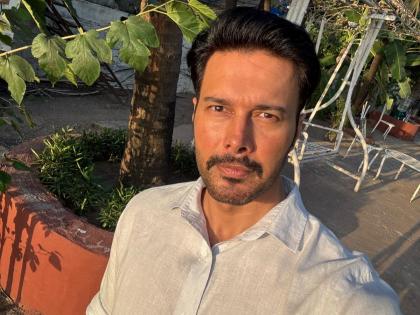The Depth in the Characters Is More Important Than Bold Scene: Rajniesh Duggal
By Lokmat English Desk | Updated: July 15, 2025 17:20 IST2025-07-15T17:19:01+5:302025-07-15T17:20:38+5:30
With the rise of social media and digital consumption, the threshold for bold content across entertainment platforms has drastically ...

The Depth in the Characters Is More Important Than Bold Scene: Rajniesh Duggal
With the rise of social media and digital consumption, the threshold for bold content across entertainment platforms has drastically shifted. Actor Rajniesh Duggal, who is set to appear in Udaipur Files—Kanhaiya Lal Murder, acknowledges this growing trend but urges the industry to remain conscious of storytelling's core values.
“With the kind of online exposure we have these days—showing bold content has increased in all our mediums,” he said, referring to the current wave sweeping across films, television, and OTT platforms. However, Rajniesh is quick to differentiate between substance and sensationalism. “I feel 60–70 percent of people do it purely to gain more audience. As long as it’s part of the script or the characters demand that sort of boldness, it’s OK,” he clarified, adding, “The essence of the story and the depth in the characters is more important than bold scenes.”
The actor strongly believes that films and other visual content serve as reflections of society—and that with such power comes responsibility. “Films are and can be used/made as a tool to educate and entertain without being preachy to the society. Millions of people who see our films look up to the actors, or a lot of lines/drama/violence or lessons that are in the film get ingrained in the subconscious of a human being. Audio-visual as a medium has the power to do that; hence, we should use it responsibly,” he emphasized.
When asked whether the depiction of themes such as divorce and family conflict has led to overexposure, Rajniesh offered a balanced perspective. “Well, with changing times and the society becoming more open, relationship issues/divorces/conflicts/family feuds are commonly being shown, and audiences of all ages are exposed to them. So I wouldn’t call it overexposure—it’s just that we can look on the brighter side rather than focusing only on such issues. But then there are grey shades in everyone’s life.”
As for content regulation, he believes it ultimately lies in the hands of the viewer. “Everything is available on all mediums. You yourself as a viewer have to control or put a bar on what you want to feed your mind. And even family members/kids—the maximum you can put is a parental control or lock, but then this generation is too smart to get past that and see what they want to. It has to be self-censorship,” he concluded.
Open in app